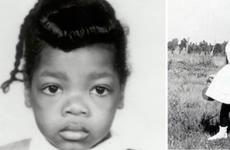Search and rescue team “Lisa Alert. “Those we didn’t find are remembered”: three stories of Lisa Alert volunteers
⠀ “March 7th. Evening. ⠀ Evening application, two girls 11 years old, Podolsk. Moscow is on the eve of the Women's New Year. Headquarters at 22:30 in Mak in Podolsk in the parking lot. Inforg Maria collects travel, equipment, orientation, surveys. Interaction with the police. As a result, we have several anchor points, the girls can be in the shopping center, in a couple of other places, in the entrances and at friends’ houses. ⠀ Next are 26 tasks for which 75 people were sent, lack of equipment. We receive a tasty certificate from a concerned citizen, Inforg double-checks it, passes the certificate to the police, since the certificate can be brought to the apartment, check and that’s it - found alive). By this time it was one in the morning, there were 89 registered search participants. At 1:40 on March 8, everyone returned to headquarters, the search was completed. Thanks to all participants. I even managed to train one participant in the coordinator course.”
Grigory Sergeev, chairman of the detachment: ⠀ “The Yarovaya bill has passed its first reading, which makes it possible to determine the location of a mobile phone without trial. But only for children. ⠀ If it’s not a child who’s missing, don’t give it a chance. Why such injustice is unclear. Meanwhile, many adults with mobile phones get lost and die. I will now give the figures that are known to the LA detachment; these are the searches that we conducted and where we did not save the person. And these are not children. These are adults with a mobile phone. ⠀ I approached the president with this problem in July 2017. The dead were counted from the moment of this meeting until the end of 2018 - there were 70 of them. Seventy lives that could not have been interrupted. For the average person to understand, these are people who could be found at the click of a button. ⠀ As a last resort, if it is not possible to establish the situation through the networks, well, give us what rescuers use around the world. There are such things - virtual base stations that can be placed on the back of a rescuer, in a car, on a helicopter, on a drone. They will make it clear down to the meter the location of the missing person. All countries use them. But we don't. And people keep dying. ⠀ While the State Duma shrugs off half measures, people continue to die. It won’t even be much easier to find children under this bill. We are looking for a phone number only if the parent and the owner of the contract have agreed in writing. We are looking without any technical details. That is, the same as now. It looks like this: here is the tower and here is the azimuth. For many, this is the direction in which they are lost. In fact, this is the middle of the repeater sector, the angle of which is usually 120°. That is, from base station for tens of kilometers, across the entire width of outstretched arms. Usually we already know the direction where the lost one went. Rescue requires great precision. ⠀ The correct words about accuracy should be added to the bill, it should be extended to all ages, and written consent, which argues with others, should be removed regulations. We know what to do and how to do it at the legislative and practical level. We hope that Irina Yarovaya’s bill can be corrected. We wrote to her assistant. Looking forward to meeting you." (scroll to watch full video)
Friends, fellow search engines, media representatives and everyone,
who is not indifferent to the problem of missing children!
It is known that many children disappear every year. We will not cite boring statistics that only the lazy did not quote. What is clear is that now there are truly enormous resources for the rapid search for lost people, thanks to several search and rescue teams that have been formed. But these resources have become difficult to use, because the struggle for the right to be considered the “main”, “largest”, “most popular” search team in Moscow and the region is already crossing all boundaries. People forget about the goal when entering into the struggle for leadership, which discredits the very idea of a volunteer movement to find children. For a long time we did not participate in the general debate, considering it unworthy and frivolous for adults. But recent events simply force an answer. To begin with, I would like to tell you how it all began...
And it all began in the forests near Chernogolovka, in June 2010, where many of us ended up by accident. On the auto forum, Yulia (Taiga) made a call for help in finding a 4-year-old boy. The search continued almost around the clock, for 4 days. Then they were lucky and Sasha was found alive. Video: Sasha sits in the arms of Alexander Efimov (YoFA), it was he who discovered him. Pavel Filippovich (Pavel, Rasp) is also seen contacting headquarters to report the situation. In total, more than 500 people took part in those searches. It is difficult to imagine the joy of the searchers when this news arrived, and the feeling with which they returned home. It was then, for the first time, that attempts were made to rally the volunteers into a single unit, but the idea was not crowned with success.
In September, after they burned out terrible fires, and the dense forest became completely impassable due to rubble, information arrived that 5-year-old Liza Fomkina and her aunt had disappeared in Orekhovo-Zuevo. Active searches began when several days had already passed, but warm weather offered a chance for rescue. Pavel Filippovich (Pavel, Rasp) undertook to coordinate the search. For almost a week, he, together with Maxim (a teammate at the auto forum) and Maria (a family friend) coordinated more than 300 volunteers who worked together with the police and military. They looked for the girl and aunt throughout the city, in the surrounding villages, in abandoned basements and houses, in endless forests and swamps, and even in neighboring cities. The entire Internet was, figuratively speaking, “on the ears.” Little Lisa was discussed on forums and blogs, social networks and psychics.
Communities of all-terrain vehicles, ATVs, dog handlers, a forum for ferret lovers and other thematic resources broadcast information about the progress of the search around the clock, helped with notifications and attracted the media for this. There was only one goal - to notify as many people as possible so that they would come and search. Those who searched in Chernogolovka also arrived and, of course, there were many new volunteers - among them Dmitry (Koleso), who searched at night and returned to the office in Moscow in the morning, and Alexander, the head of a detachment of volunteer firefighters, Dmitry Volkov came with him (bayaga), which were extinguished before the search forest fires in this area (now he heads the Polar Star PSO) and Dmitry Lobanov (Okhotnik, Dmitry) with a dog - they were the ones who found traces of Lisa and her aunt, Masha, and friends, professional rescuers two Igor (Igor-73 and Igor - 107 ) and many, many, many others! It is simply impossible to list them all! Several hundred caring people who abandoned their everyday life and rushed to the Moscow suburbs. The auto forum, where Pavel described the chronology of events and attracted volunteers, collapsed from the number of visitors. The well-known LJ wwwHYPERLINK "http://www.13sep2010.livejournal.com/".13sep2010.livejournal.com was opened, where about 20,000 people from all over the globe visited per day. Lisa and Masha were found too late. But that gigantic resonance, those mistakes and conclusions that were made after the search left no other options except the creation of a professional volunteer search team.
It became clear that one of the reasons for the failure of the search was the delay in receiving operational information about the disappearance of children, the disorganization and unpreparedness of volunteers. The newly formed detachment was called upon to undertake the training of volunteers, conducting training, and coordinating searches. Moreover, a team of volunteers has formed who have gained enough experience in conducting search operations. And under pressure from the public and volunteers, Pavel Filippovich (Pavel, Rasp), it was he, and not Grigory Sergeev (Grigoriy) and no one else, who created the “Lisa ALERT” detachment. LiveJournal 13Sep2010 a cry was raised to recruit volunteers for the detachment. Several hundred responses came in, including many who took an active part in the search. Even representatives of show business and government responded. Of course, there were those who joined in the general wave, many simply sympathizers and “onlookers.” The fact that they left over time was not a surprise, it always was and will be so. But, the more dear to us has become that time-tested and experience-tested backbone that continues what it started. So, in memory and thanks to the little girl, the Lisa ALERT detachment arose.
Late autumn and winter is a search lull. They walk in the forest less, get lost less - great time for training and exercises. Groups were created in certain areas of search, an action plan was drawn up, and general meetings of all volunteers were held in order to develop a unified strategy and the governing body of the detachment - the Council. Large squad-wide exercises were conducted, with the participation of all-terrain vehicles and foot search engines.
In February 2011, the detachment had to go through difficult times. The administrators of the resource (www.lizaalert.org), led by businessman Grigory Sergeev (Grigoriy), who were recruited on a voluntary basis, decided to remove the Council from managing the detachment and begin to manage the detachment independently. Dishonest methods were used: they limited the ability of the detachment leadership and volunteers who disagreed with the administrators to communicate on the forum, disabled personal messages, banned them by IP address, attracted people who had nothing to do with the detachment and never participated in the search. In order to disrupt the general meeting, photocopies of powers of attorney were presented, including from people who had never taken part in the activities of the detachment. Who were these people? And how were such actions supposed to help search for children? Information about the training was deleted, and an entertaining meeting at the recreation center was scheduled for the same date. Slander was spread against the leadership of the detachment, and new volunteers who sincerely did not understand anything and asked fair questions to the admins on the forum most often received a ban. Meetings were held in secret from the rest of the detachment members, which were passed off as a general meeting of the detachment. When the detachment’s leadership demanded that the administrators resign, he was simply disconnected from the forum. Soon, the initiative group of the forum gathered in a close circle and proclaimed itself the leadership of the detachment. These people did not ask anyone registered on the forum, did not look at the key searchers who did so much for the formation of the detachment. The main activity on the resource now is to attract as many people as possible, which is not difficult to do, given the number of interviews that they give out in the media, using the well-known and honest name of the detachment. By participating in the search, they misinform everyone, for example: the parents of Sasha Stepanov, who disappeared in May in the Mozhaisk region, are sure that he was found by a certain volunteer GriHYPERLINK "http://www.rutv.ru/video.html?tvpreg_id=151120&vid=119500&mid=14&d= 0&p=1"sha, read Grigory Sergeev (Grigoriy), (43 minutes), although it is known for certain and reflected in the investigative documents that the boy was found by huntsman A. Lebedev, who is not related to the search groups. Lately Accusations began to be heard against us, the organizers of the “Lisa ALERT” detachment, that we were interfering with the site administrators in their, as they say, “common cause.” Of course, we interfere J We don’t give out interviews, we don’t attract the media for self-PR, we don’t conduct demonstration training in front of cameras, we don’t wave flags and we don’t take credit for information about the happy return of a lost animal to the family, but in fact we organize training and training. It’s more difficult for them, knowing that the “Lisa ALERT” squad exists, like legal entity and the community of search engine professionals, and not as an Internet forum that accumulates caring people around itself, and cannot use this huge human resource due to the lack of a clear and professional organization. It became more difficult for them to appear on television, give interviews in newspapers and magazines, telling how they organized the detachment. Because they didn’t organize it, and this is increasingly coming to the surface. Even more strange is that these people consider themselves entitled to give us instructions and accuse us of registering a detachment, which was publicly announced last fall.
Don't believe what's written here is true? Try asking uncomfortable questions on the lizaalert.org forum and see the reaction. To begin with, within 24 hours your registration will be reviewed and checked to see if you are worthy to communicate on the “volunteer” forum; information about this is posted on the forum. Your question will most likely be erased, and you yourself will be banned or put under pre-moderation. Read old forum topics, for example, the “Activities” section, pay attention to the nicknames of the people who read here. Are we “a squad that exists only on paper”? But it was we who organized the aircraft, as everyone testifies early themes created on the forum. The authors of the initiatives conducted and conduct training and lead a real detachment. Only these people are no longer on the site. Moreover, not on their initiative. Try it, there is little time left - what if you have time to read these topics before they end up in a section that is closed to ordinary users?
But the ambitions of such “volunteers” as Grigory Sergeev (Grigoriy) will not stop us in achieving our initial goals and objectives. The team's work will continue. We will conduct training, training, and participate in searches. That's what we've been doing all this year. Despite everything, we are still confident that strength and results are not in quantity and “loudness,” but in quality. We had no intention of getting into a public spat with these people, but the sudden onslaught of accusations from them forced us to tell the truth. And, we remain confident that no matter what the squad is called, the result of its work and the professionalism of the search engines are much more important, and not the number of publications and interviews in the media. We encourage all volunteers to strive for this.
Sincerely, leaders of the MoOO "PSO "Liza ALERT"
Pavel Filippovich
Dmitry Lobanov
Stanislav Shakel
| Search and rescue team "Lisa Alert" | |
|---|---|
| LizaAlert | |
| File:LA logo.jpg | |
| Date of foundation | October 14, 2010 |
| Type | volunteer squad |
| Number of participants | It is not possible to measure the number of participants since people come and go |
| Chairman | Grigory Borisovich Sergeev |
| Website | lizaalert.org |
DPSO Lisa Alert (Volunteer Search and Rescue Squad, Search Squad Lisa Alert) is a non-profit public organization consisting of volunteers and engaged in the search for missing people. Also known as Volunteer Search and Rescue Lisa Alert. The name of the organization comes from the name of 5-year-old Liza Fomkina, whose search gave impetus to the creation of the detachment, and English word Alert(translated as an alarm signal). The bulk of the searches take place in the Moscow region and surrounding areas. Priority is given to searching for children and the elderly, as well as people lost in natural environment. The detachment does not search for missing soldiers and identify them. The detachment does not provide paid services by search; searches are carried out free of charge by the efforts of volunteers.
Squad functions
- Operational search for missing people;
- Carrying out preventive measures aimed at reducing the number of cases of disappearances;
- Training members of the Lisa Alert DPSO and state search and rescue teams in the skills of conducting search operations, methods of providing first aid to victims, using search equipment (compass, walkie-talkie, navigator, etc.) and other skills necessary in search work.
- Dissemination of information about the Lisa Alert DSSO in order to attract new volunteers and optimize interaction with government agencies in the process of conducting search activities.
Functions of squad members
Remotely:
- Hotline operators receive, process and forward requests to PSO units around the clock, and advise applicants on initial actions in the event of a missing person.
- the information coordinator provides the necessary data to the headquarters and directs volunteers;
- the information group disseminates information in the media and attracts volunteers;
- the cartographer prepares maps of the search area.
- the coordinator directs search and rescue operations;
- an operational cartographer puts the necessary information on the map;
In the search area:
Organization of search activities
Applications for searches are received in the form of a call to a 24-hour phone number or to the PSO “Lisa Alert” website by filling out a special form. Anyone can apply. This is usually done by relatives and friends of the lost person or by official services. The only condition: the person must be officially listed as missing, i.e. there must be a police report.
Upon acceptance of the application, a search coordinator and information coordinator are determined. Members of the squad are notified by posting a relevant topic on the forum, sending SMS and email newsletters to subscribers from among the squad members, and posting information on Twitter. At the same time, calls begin to be made to the Central Information Ambulance, the Accident Registration Bureau, as well as hospitals in the corresponding region. Volunteers ready to leave notify the search coordinator about the time and place of departure for the search; with the help of the information coordinator, vehicle crews are formed depending on the territorial location of the search engines.
Maps of the search area are prepared and printed. Directions are compiled and replicated with a photograph of the missing person, a description of the main signs and an indication of the date and place where the person was last seen. Information about searches is disseminated on the Internet and in the media.
Upon arrival at the search site, relatives and friends of the lost person are interviewed, and contact is established with the official services involved (police, Ministry of Emergency Situations). A field headquarters is organized, which includes: a headquarters tent and/or vehicle, workstations for a radio operator and cartographer, a doctor on duty, a kitchen, and a parking lot. All available and emerging information during the search flows to the coordinator. The territory is divided into squares and zones.
The coordinator, taking into account the skills, abilities, and capabilities of the volunteers, divides them into groups and directs them to perform tasks on the ground. The data received from the search teams is brought together, and the surveyed territories are marked on maps. When conflicting information appears, all possible versions are explored. The search coordinator analyzes all information obtained during the search process and makes decisions regarding further search activities. Searches begin and are carried out at any time of the day and are carried out until the lost person is found or until all available leads are worked out. Next, active searches can move into a passive phase until new information appears.
Activity
In addition to direct search activities, the detachment is engaged in the following activities:
- attracting and training volunteers in first aid techniques, working with a navigator, radio station, compass, cartography, leading a search group, managing the search in general, etc.;
- conducting training trips where various search activities are practiced;
- work with the media;
- establishing contacts with official and unofficial organizations;
- carrying out preventive measures aimed at reducing the number of cases of disappearances;
- Carrying out promotions aimed at updating society's attention to the problems of missing persons.
The detachment took part in eliminating the consequences of the flood in Krymsk ( Krasnodar region) in the summer of 2012.
The team is a Winner of the ROTOR Award in the “Internet Community of the Year” category.
Principles
The detachment was built on the basis of goodwill, mutual benefit, and selflessness. PSO "Lisa Alert" does not accept financial assistance and does not have current accounts or virtual wallets. This is the principled and unchanging position of the detachment. Those who wish can help disseminate and/or collect information, assist in providing or donate to the detachment the equipment necessary for search work (a publicly accessible list of equipment is available on the Organization’s website), as well as products for providing food for searchers during search work.
Volunteers
The squad consists of people different nationalities, professions, views, religions. The main thing that unites them is a caring attitude towards someone else’s misfortune, enthusiasm, and a willingness to spend their time, effort and money for the benefit of the victims. Minors are not allowed into the squad.
Regional divisions and colleagues
The Moscow detachment is the most numerous and active. Units of the detachment, of varying degrees of organization, were formed in more than ten regions of Russia: Tver, Krasnodar, Ivanovo, Leningrad, Kostroma, Rostov, Bryansk, Kaluga, Altai, Kursk, Tatarstan... In a number of regions, local search and rescue teams are being born: Tula, Perm, Vologda, Vladimir, Khabarovsk, Omsk, ... The structure of the detachments is network, there is no coordination from the center, interaction occurs for the purpose of exchanging information, training (including distance learning) and providing assistance in creating an independent, capable regional structure.
Why do people disappear?
People who are unable to navigate space on their own and are left unattended easily get lost. This category includes young children, people with mental disorders, memory disorders, including senile ones. The squad has to look for victims of accidents and crime. A separate category consists of the so-called. “runners” are people hiding of their own free will.
History of creation
The idea of creating a squad to search for missing children came in the fall of 2010 after the search for little Sasha, who got lost in the forest near Chernogolovka, and 5-year-old Liza Fomkina, who, along with her aunt, got lost in the forest near Orekhovo-Zuev. The prototype for the name of the detachment was international system alerts
Three hours is the life time of a child if he was kidnapped by a maniac. Seven to ten years are the age of children running away from home. Eighty percent of missing children are found alive. You shouldn't have to wait 72 hours to file a missing persons report - that's a dangerous myth. More than ninety percent of children who die in the natural environment drowned. These are the numbers of the All-Russian search and rescue team "Lisa Alert".
Over the past year, the detachment accepted 6,171 requests for missing people, 4,000 people were found alive, 628 died. total number 1,151 applications concerned missing minors, of which 490 were children under 12 years of age.
973 children were found alive, 48 children died (including children under 12 years old - 429 were found alive, 22 children died). The figures are current as of November 2016.
Runners, lost ones, kidnapped - this is the order in which we can list the children that the LA squad is looking for. The largest percentage of applications from parents are for children who voluntarily ran away from home.
“About five years ago, we believed that mostly teenagers aged 13-15 years old were running. Then the age of the runners began to get younger - now it’s 7-10 years old. Children of this age have no idea what will happen to them on the street. Teenagers usually have some kind of then the plan: where they will go, where they will spend the night, what to eat,” says Irina Vorobyova, LA coordinator, director of the Foundation for the development of the Method Center system for searching for missing people.

© Photo: provided by the search and rescue team "Lisa Alert"
Aircraft search history: Vladimir region. Two boys ran away from home and hid in an abandoned factory. One of the children returned, he was not even listed as missing. They searched for the second boy for 24 hours. Until the boy returned and said that a wall had collapsed on his friend.
According to the squad's statistics, the most common reason for escape is home furnishings. Parents may not scold the child; a bad relationship between themselves is enough. The child gets the feeling that he is not going home, but into a hostile environment from which he wants to be further away.
Parents' attitude towards grades- also a reason to escape. As soon as the school term ends, grades are posted and the kids run off. They are afraid that they will scold them. Common reason shoots - relationships at school among peers: they offend, bully.
LA search history: The boy came home from school. Dad asked to see the diary, the child replied that he had forgotten it at school. The father sent his son back. The boy left and did not return. They started looking for the child. It turned out that the boy was sitting in his own entrance two floors above the apartment. As a rule, in winter children hide in the entrances of their houses or where they often go to visit.
LA search history: A seven-year-old boy has disappeared. There were no conflicts at home, I studied well. Nothing was missing from the house. I took with me a backpack, a book, a loaf of bread and an apple. In the summer, he agreed with a friend at the dacha that they would meet on a certain day and build a spaceport. The boy got on the train and went to the dacha to meet a friend. He made a mistake, arrived at another station, and got off. The child was lucky, there was no summer season, local residents quickly noticed him and called the police.
“If a child doesn’t have a friend named parent, then no matter what you do, you will never know how your son or daughter lives. They won’t tell you that they beat you at school, that classmates bully you, that school is hard,” says Irina Vorobyov.
LA search history: An 11-year-old boy has gone missing. Mom raised her son alone, worked all week, and did not have enough time for her son. The information about the child that the mother gave absolutely did not coincide with the real boy who was found by LA. It was two different people, my mother knew nothing about him. His VKontakte page was open on his home computer. LA read his correspondence: “we were looking for a child, and his behavior and way of thinking were more suitable for a teenager of 16-17 years old.” Found. Alive.
Courtesy of the Lisa Alert search and rescue team

© Photo: provided by the search and rescue team "Lisa Alert"
“Many people ask whether VKontakte should be banned for children. I am against bans, it is useless, it leads to conflicts, but we need to control it. There are many groups that are simply harmful. The most reliable information should come from parents,” says the LA coordinator.
Lost in the natural environment
A child must know two simple rules: Forest and water are always dangerous. You can only enter the forest and approach the water with adults.
“If a child disappears in the natural environment, the first thing we do on the spot is to cut off the child’s access to water. 99.9 percent of children who died in the natural environment drowned,” says Irina Vorobyova.
LA history: Dasha Zh. and Vanya M. from the Yaroslavl region disappeared while walking. They searched the entire village, all the houses. They were looking for them for almost two years. Vanya was found in May of this year, and then Dasha was found. They fell through the ice.
History of the search for the aircraft: The child died almost in front of his grandmother’s eyes. We walked along the steep bank of the river. Grandmother is in front, child is behind. Suddenly she realized that it was quiet behind her, she turned around - there was no child.
Searching for children in the natural environment is more difficult than for adults: they do not respond to cries and cross linear landmarks.
LA search story: Dad and child lost in the forest. This difficult option, if they separate, they will have to look for people searching for each other in a panic. Dad was in touch. He said that he had lost his son. The phone doesn't work, he has a compass, but he doesn't know how to use it. We explained to him what to do. Half an hour later I found the child. We asked not to move anywhere and wait for help. Dad replied that now they would go out on their own - his son knew how to use a compass. They left.
History of the search for LA: The brothers went into the forest and got lost. They searched evening and night, the next day they came out onto the road. Then they said that they met adults in the forest and asked where the exit was. They pointed and moved on. The children came out to locality and asked where their village was. At night we heard ATVs and screams, but while they were running, everyone had already left. In the morning we went out onto the road.
City: find by pattern
Parents and child must have pre-agreed templates behavior in different situations. These patterns must match.
For example, you are traveling in transport with a child. There are a lot of people, the child came out, you didn’t have time. There should be an agreement on the sequence of actions - your general template.

For example, the metro. The child goes to the center of the station, where there is an information stand (red and blue in Moscow). He should stand next to him and wait for you. You will arrive on the next train. If mom doesn’t arrive on the next trains, you need to press the SOS button at the stand. If it’s an electric train, you need to find a person in uniform at the station and explain the situation. At the shopping center, you need to agree where you will meet.
Aircraft search history: On hotline"Lisa Alert" a girl calls. And he says: on the side of the road there is a child of about five years old, not far from shopping mall, there are no adults nearby, cars are driving and the situation is dangerous. The girl asked what she should do. We advised her to get out of the car and approach the child so that there would be no danger for him to get hit by the car. Next, ask the child where he came from and his name. No need to get into the car. If he left the shopping center, go there together and ask the security to announce the child over the speakerphone. The child was with his mother in the shopping center, lost his mother in the department and went to the exit. According to his logic, mom went home.
Aircraft search history: One of the Moscow parks. A call from dad - we were skiing with our 11-year-old son, dad went ahead, looked back - his son was gone. It was the end of winter, the situation was serious. At some point, the child lost sight of his father and turned onto another ski track. I accidentally reached the finish line of a ski competition.
LA search history: Dad was walking with the children in the park. I got distracted by my daughter and lost my son. We found out from dad that there was no one at home and persuaded him to return. He resisted for a long time. I arrived home, my son was waiting at the entrance.
The child should know and feel that you are one team, this is important. Must know the phone number in case of trouble. This can be not only your number, but also the number of a family friend or relative who always answers the call.
Be friends with your children. Otherwise, if something goes wrong, you won't be able to explain what might have happened or tell you where to look. This could save their life.
Continuation of the work of the search and rescue team
Search and rescue team Lisa Alert was organized in 2010 as a result of the search for a lost girl named Lisa. This is a non-profit association of people with a common goal - searching for missing people in the natural and urban environment. The organization does not accept monetary donations and works on the principle of selfless mutual assistance. Anyone who needs it can ask for help in finding a missing person. All you have to do is leave a request by phone or on the Liza Alert website.
Public search team Lisa Alert - official website
On the main page in the header, the user will easily notice telephone numbers by which he can call at any time of the day important information or leave a request to search for a missing person. Distribute important messages to social networks you can use the buttons located under the hotline phone number.

Below is the main menu bar of the site. The first section, “Movement,” contains information about the detachment, the history of its creation and the basic principles of its activities. Here you can read news and view Lisa Alert's photo albums. A separate page “Volunteer LA” will help you understand whether you are ready to join this movement, find out how you can become a member of the team of volunteer search engines Lisa Alert, and fill out an application form to join the group.
Movement - Volunteer LA

The “Registration” section invites those wishing to sign up as volunteers to select the group in which they want and have the opportunity to participate. Fill out the application form and enter your phone number in the SMS newsletter.
Volunteer questionnaire

The materials section contains statistics on the results of searches. Here you can download banners for placement on various Internet resources. The "Recommendations" subsection contains reminders and articles that will tell you how to behave if you or your loved ones are lost, as well as tips to help avoid such situations.

On the "Team Needs" page, anyone who wants to help the search party can find out what they need. at the moment needs a search party.
Squad needs

You can discuss the activities of Lisa Alert and chat on abstract topics on the Forum.

You can contact PSO Lisa Alert and its leader by phone numbers listed on the contacts page. " Leave a search request"missing information can be found by clicking on the button that appears on each page of the site.

Most of the main page of the site is occupied by news. Banners are displayed on the right to inform you about current search operations.
News and current searches

Under the news you can find announcements about children found and returned home, as well as about those people who still could not be found.
Advertisements







